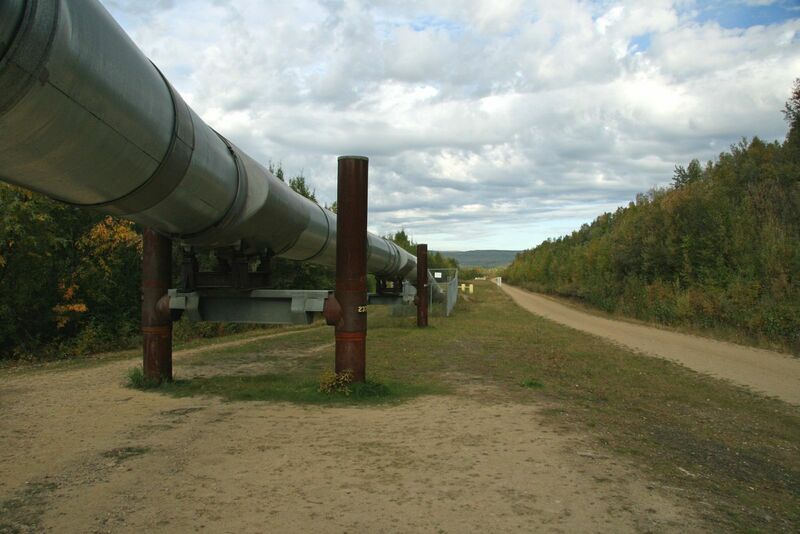
For pipeline companies, the shale era brought a wealth of opportunities. As gushers of oil (CLU23) and natural gas (NGU23) suddenly erupted in places such as North Dakota and Pennsylvania, the need for a vast expansion of the "plumbing" that moves energy around the country was obvious. That's what led to a decade-plus long boom that produced thousands of miles of new pipelines.
The shale growth story is not over in the U.S. oil and gas patch, but it is slowing. And for certain, the associated pipeline building boom has pretty much run its course.
That makes acquisitions one of the few remaining paths to growth for pipeline companies.
Energy Transfer's Wheelin' and Dealin'
That's the logic behind the proposed deal announced on Aug. 16, when U.S. energy pipeline operator Energy Transfer LP (ET) agreed to buy rival Crestwood Equity Partners LP (CEQP) in a deal valued at about $7.1 billion, including debt.
Crestwood's unitholders will receive 2.07 Energy Transfer common units for each Crestwood common unit. The transaction is expected to close in the fourth quarter of 2023, after which Crestwood unitholders are expected to own about 6.5% of Energy Transfer’s units.
The deal makes sense for Energy Transfer. Crestwood will give it a larger share of energy transport in three top shale basins. It will grow Energy Transfer’s position in the prolific Permian Basin oil and gas fields, which stretch across Texas and New Mexico, as well as the Bakken in North Dakota. It will also give Energy Transfer a foothold in Wyoming’s Powder River Basin.
Overall, the deal will add about 2 billion cubic feet per day of gas-gathering capacity, 1.4 billion cubic feet per day of gas-processing capacity, and 340,000 barrels per day of crude-gathering capacity. The company expects to save about $40 million in annual costs from the deal.
Even before the purchase of Crestwood, Energy Transfer already has a 125,000-mile network of oil and gas pipelines, which is among the largest in North America.
The company said the new assets would allow it to funnel more hydrocarbons to its storage and processing facilities at Mont Belvieu, Texas, and to its export facilities at Nederland, Texas, and Marcus Hook, Pennsylvania.
This proposed deal continues an acquisition push by Energy Transfer co-founder and majority owner Kelcy Warren – he owns 81.2% of the company's general partner, and is pushing for an expansion into liquefied natural gas and chemicals.
Earlier this year, Warren bought smaller rival Lotus Midstream for $1.45 billion. And in 2021, he snapped up Enable Midstream Partners for $7.2 billion.
More Pipeline Deals to Come
This latest deal pulled off by Kelcy Warren is part of a broad and long-lasting trend in the industry.
That's partly due to the fact that more strenuous U.S. regulations are making energy infrastructure operators more valuable.
And when you throw in that the industry is in one of the best financial positions it has been in for years, from a cash flow perspective - there is a lot of room for more consolidation among the pipeline firms.
We've already seen one major transaction so far in 2023. In May, natural gas pipeline giant Oneok (OKE) announced an $18.8 billion deal to the buy oil-focused pipeline firm Magellan Midstream Partners LP (MMP), though the takeover has faced some pushback from a few big shareholders.
I expect much more consolidation to come, with big players like Energy Transfer rolling up the smaller pipeline firms.
Even without doing anything more, Energy Transfer is in a good place.
In its latest earnings report, it was quite evident that the company's natural gas liquids (NGLs) business is robust.
The company owns approximately 5,650 miles of NGL pipelines with an aggregate transportation capacity of nearly 3 million barrels per day. The completion of expansion projects at its Nederland and Marcus Hook Terminals in 2020 and 2021 brought the total NGL export capacity to over 1.1 million barrels per day.
Energy Transfer's Nederland is the second largest NGL export facility in the world. It is able to export approximately 700,000 barrels per day of NGLs, supported by storage capacity for over 3 million standard barrels of ethane, propane, butane and natural gasoline. In total, the company continues to export more NGLs than any other company or country, and its percentage of worldwide NGL exports is approximately 20% of the global market.
Add in a juicy yield of 9.54% (dividends are paid quarterly), and that makes ET a buy on any market weakness, in the $12.50 to $13.50 range.








